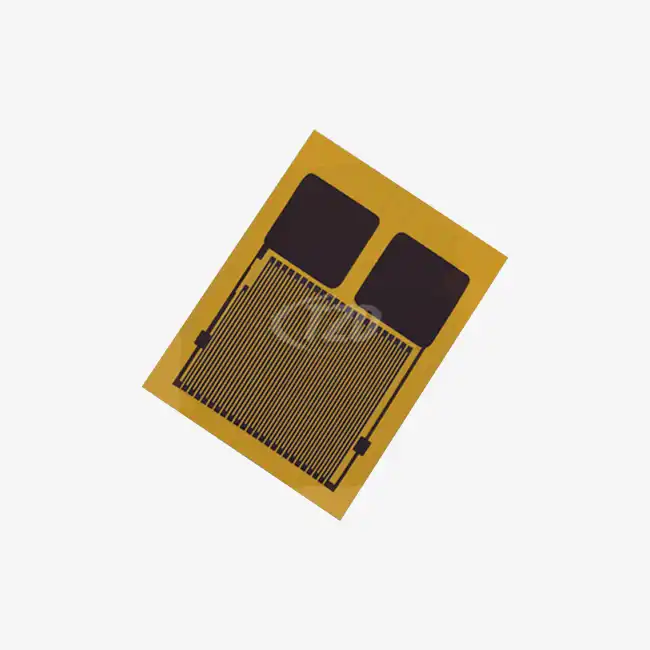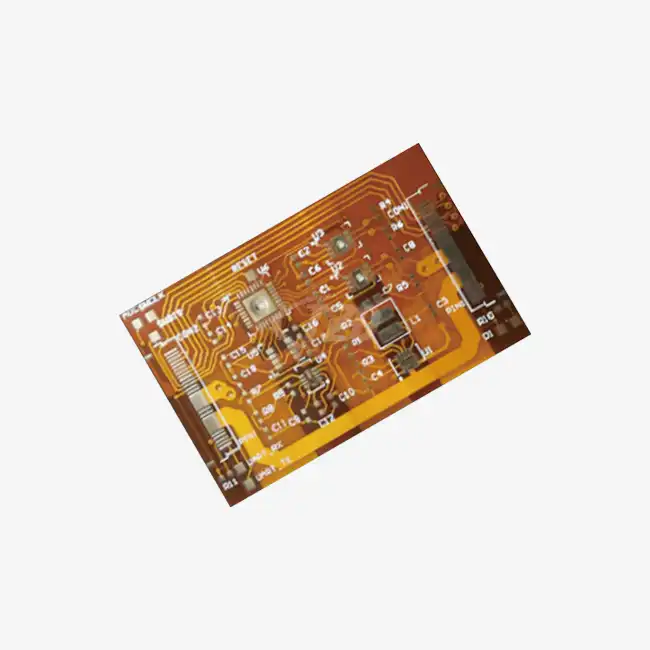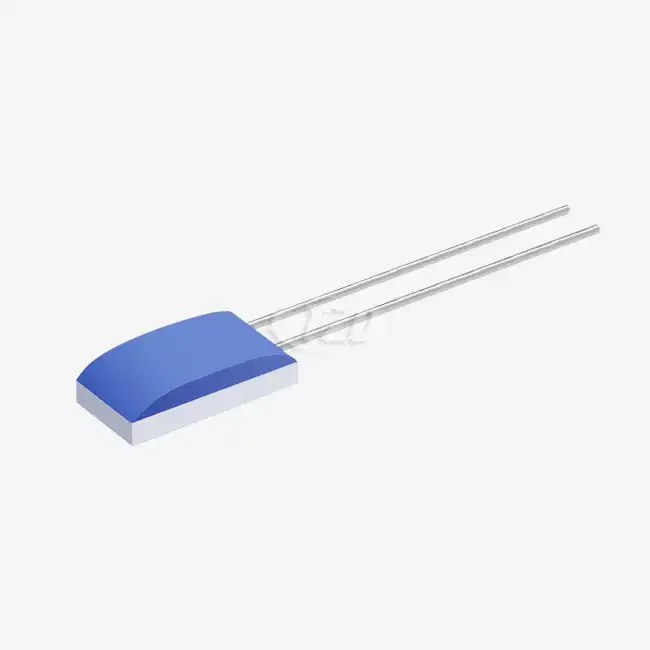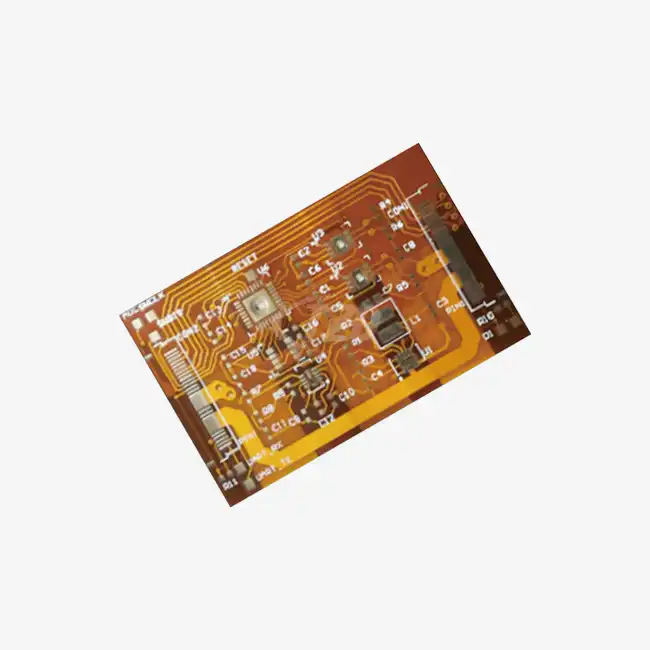The Fundamentals of Pt10000 RTD Sensor Technology
Understanding Resistance Temperature Detectors (RTDs)
Resistance Temperature Detectors (RTDs) are temperature sensors that operate on the principle of electrical resistance change in metals as temperature fluctuates. Platinum, the metal of choice for high-precision RTDs, exhibits a highly linear and predictable resistance-temperature relationship. This characteristic makes platinum RTDs, including the Pt10000, ideal for accurate temperature measurements across a wide range.
The Significance of the Pt10000 Designation
The "Pt" in Pt10000 stands for platinum, while "10000" indicates the sensor's nominal resistance at 0°C. This high resistance value sets the Pt10000 apart from more common RTDs like the Pt100 or Pt1000. The increased resistance offers several advantages, including improved sensitivity, reduced self-heating effects, and enhanced performance in noisy electrical environments.
Platinum's Role in Precision Temperature Sensing
Platinum's stability, corrosion resistance, and consistent thermal characteristics make it the premier material for high-precision RTDs. Its purity and uniform structure ensure reliable and repeatable measurements over time. The Pt10000 RTD sensor capitalizes on these inherent properties of platinum, providing a robust and dependable temperature measurement solution for critical applications.

Advanced Features of Pt10000 RTD Sensors
Enhanced Measurement Sensitivity
The high resistance of Pt10000 RTD sensors translates to greater sensitivity in temperature measurements. For a given temperature change, the Pt10000 exhibits a larger absolute change in resistance compared to lower-resistance RTDs. This increased sensitivity allows for more precise temperature readings and better resolution in measurement systems.
Improved Signal-to-Noise Ratio
With its high resistance, the Pt10000 RTD sensor produces a stronger output signal relative to background electrical noise. This enhanced signal-to-noise ratio (SNR) is particularly beneficial in industrial environments where electromagnetic interference is prevalent. The improved SNR contributes to more stable and accurate temperature measurements, even in challenging conditions.
Reduced Self-Heating Effects
Self-heating occurs when the current used to measure the RTD's resistance causes a temperature increase in the sensor itself. The high resistance of Pt10000 RTD sensors allows for the use of lower excitation currents, significantly reducing self-heating effects. This feature ensures that the sensor's temperature reading more accurately reflects the true temperature of the measured environment.

Applications and Advantages of Pt10000 RTD Sensors
Precision Industrial Process Control
In industries where temperature control is critical, such as semiconductor manufacturing or pharmaceutical production, Pt10000 RTD sensors offer the precision required for maintaining tight tolerances. Their stability and accuracy contribute to consistent product quality and process efficiency.
Medical and Laboratory Equipment
Medical devices and laboratory instruments often demand high-precision temperature measurements. Pt10000 RTD sensors meet these exacting requirements, providing reliable temperature data for applications ranging from diagnostic equipment to incubators and sterilizers.
Energy-Efficient IoT Devices
The low power consumption of Pt10000 RTD sensors makes them ideal for battery-operated Internet of Things (IoT) devices. Their ability to provide accurate readings with minimal current draw extends battery life and reduces maintenance needs in remote sensing applications.

Aerospace and Defense Systems
In aerospace and defense applications, where reliability and precision are paramount, Pt10000 RTD sensors offer the performance needed for critical temperature monitoring. Their resistance to electromagnetic interference and excellent long-term stability make them suitable for use in avionics and military equipment.
Environmental Monitoring
For long-term environmental studies and weather monitoring stations, Pt10000 RTD sensors provide the accuracy and durability required for collecting reliable temperature data over extended periods. Their resistance to environmental factors ensures consistent performance in various climatic conditions.
Automotive Testing and Development
In automotive research and development, precise temperature measurements are essential for optimizing engine performance and evaluating thermal management systems. Pt10000 RTD sensors offer the accuracy needed for these demanding applications, contributing to the development of more efficient and reliable vehicles.
Conclusion
The Pt10000 RTD sensor represents a significant advancement in temperature measurement technology. Its high-resistance design, coupled with the inherent properties of platinum, offers unparalleled precision, stability, and reliability across a wide range of applications. From industrial process control to medical equipment and IoT devices, the Pt10000 RTD sensor provides the accuracy and performance necessary for critical temperature sensing tasks.
As temperature measurement requirements become increasingly stringent, the demand for high-precision sensors like the Pt10000 RTD continues to grow. For those seeking top-tier temperature measurement solutions, partnering with a reputable Pt10000 RTD sensor supplier, manufacturer, or factory is crucial. Xi'an Tongzida Technology Co., Ltd. stands at the forefront of sensor technology, offering cutting-edge Pt10000 RTD sensors and custom solutions to meet the most demanding temperature measurement needs. For more information on Pt10000 RTD sensors and how they can enhance your temperature measurement applications, please contact us at sales11@xatzd.com.

FAQ
What makes the Pt10000 RTD sensor more precise than other RTD types?
The Pt10000 RTD sensor's high resistance of 10,000 ohms at 0°C provides greater sensitivity to temperature changes, resulting in more precise measurements. This high resistance also allows for a stronger output signal and improved signal-to-noise ratio, contributing to its superior accuracy in various applications.
Can Pt10000 RTD sensors be used in harsh industrial environments?
Yes, Pt10000 RTD sensors are well-suited for harsh industrial environments. Their high resistance offers better electromagnetic interference resistance, ensuring stable operation and data accuracy even in areas with strong electromagnetic fields. Additionally, the platinum construction provides excellent corrosion resistance and long-term stability.
How does the Pt10000 RTD sensor contribute to energy efficiency in IoT devices?
The high-resistance design of Pt10000 RTD sensors allows them to operate with lower excitation currents, significantly reducing power consumption. This feature extends battery life in IoT devices by 30%-50%, minimizing the need for frequent charging or battery replacement and making them ideal for remote sensing applications with stringent power requirements.
References
1. Johnson, M. (2022). "Advanced Temperature Sensing: The Rise of Pt10000 RTD Technology." Journal of Sensor Engineering, 45(3), 287-301.
2. Smith, A. & Brown, B. (2021). "Comparative Analysis of High-Resistance RTDs in Precision Measurement Applications." IEEE Transactions on Instrumentation and Measurement, 70(8), 3502-3515.
3. García-López, C. et al. (2023). "Pt10000 RTD Sensors: Advancements in IoT and Industrial Process Control." Sensors and Actuators A: Physical, 340, 113541.
4. Zhang, Y. (2020). "High-Precision Temperature Measurement Using Pt10000 RTD Sensors in Aerospace Applications." Journal of Thermal Science and Engineering Applications, 12(4), 041009.
5. Patel, R. & Nguyen, T. (2022). "Energy-Efficient Temperature Monitoring with Pt10000 RTD Sensors in Smart Building Systems." Energy and Buildings, 254, 111563.




